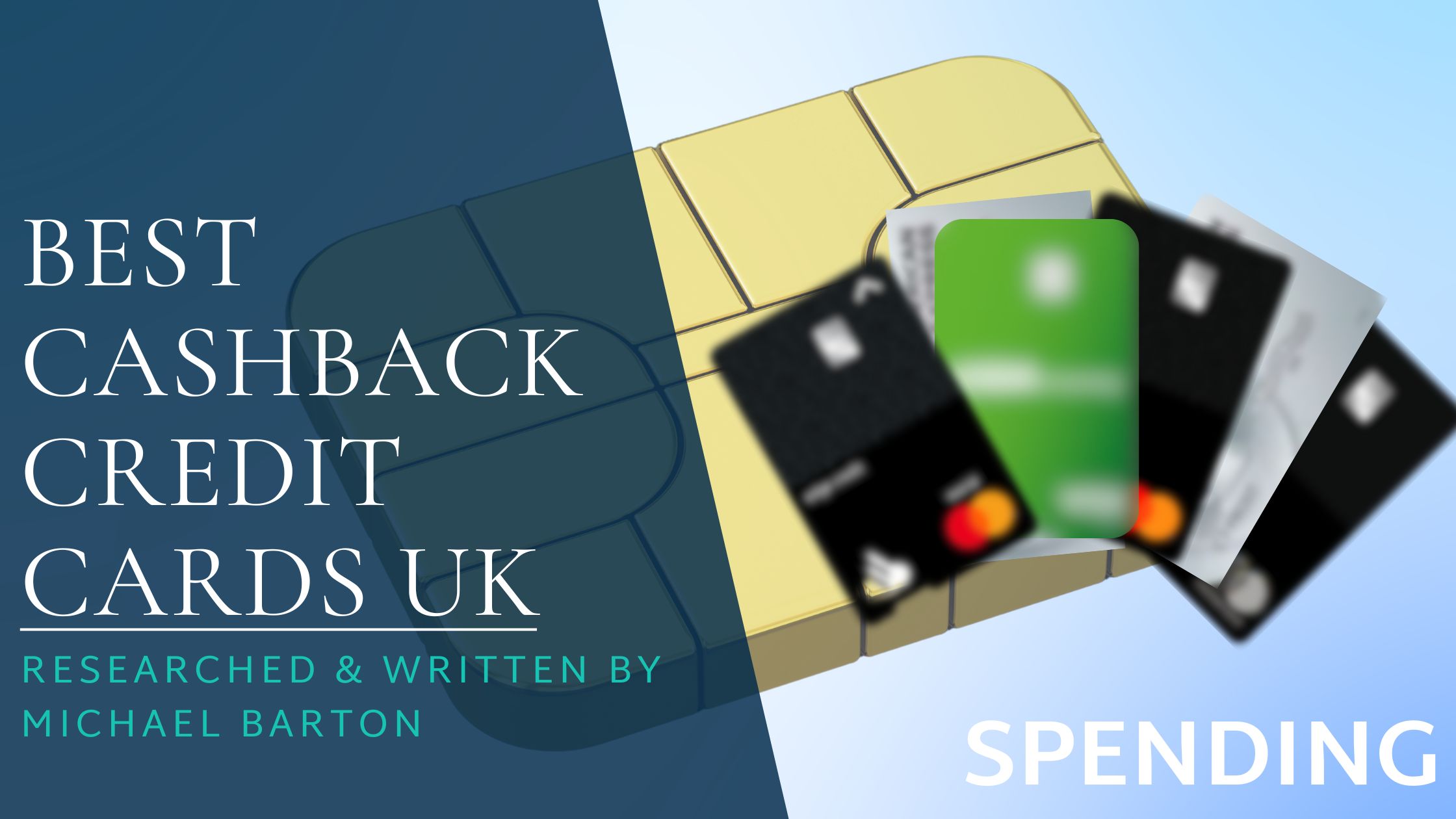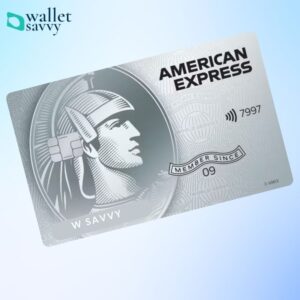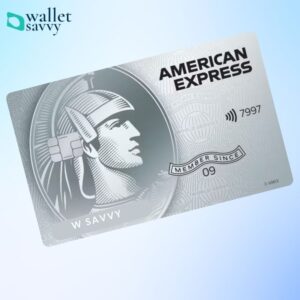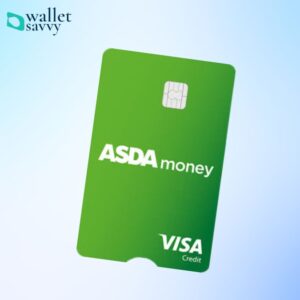Want to be rewarded for spending? Here, we highlight the best cashback credit cards in the UK, what they offer, and what to watch out for.
Wouldn’t it be great if you could simply go about your daily business and then, at the end of the month, receive a few pounds for doing no more than spending as you would? Welcome to the world of cashback credit cards. A world in which you really can get something for nothing!
Too good to be true? Not if you play by the rules and pay off your balance in full every month.
However, not all cashback credit cards are created equal. Which means you’ve got to take care when choosing which is the best for you.
TLDR: Which Cashback Credit Card Is Best?
Want to be rewarded for no more than going about your daily business as usual? Cashback credit cards reward you for everyday spending. It’s a no-brainer, isn’t it?
- For most users, the American Express Cashback Everyday Credit Card stands out with no annual fee and a generous cashback scheme.
- If you’re a big spender, the American Express Cashback Credit Card ramps up the rewards for you.
- Asda shoppers will adore the Asda Money Credit Card for extra savings on groceries.
- If you’re seeking cashback with added benefits like balance transfer offers, the Santander World Elite Mastercard and Santander All in One Credit Card Mastercard could be ideal.
Of course, maximising your gains requires a strategic approach and good money management habits. You’ll want to avoid overspending, pay off your balance every month, and use other rewards programs simultaneously to ‘double-dip’ whenever you can. Get the basic right, and there is no reason why you shouldn’t benefit by as much as hundreds of pounds each year.
How Cashback Credit Cards Work – The Basics
Cashback credit cards work incredibly simply…
Spend as you normally would, and receive a percentage of what you spend as a ‘reward’ for using your credit card. This cash reward is usually added to your credit card balance at the end of each month or annually.
Some cashback offers only apply to ‘eligible spending’, which means you only get cashback when you spend at certain shops or services. You might also receive different percentages based on where you shop.
Oh, and you might need to spend a minimum amount to receive cashback, or have your cashback capped.
That’s the rules of cashback credit cards summed up. Easy, isn’t it?
The Best Cashback Credit Cards in the UK
There aren’t as many credit cards that reward you with cashback as there used to be. Those that remain aren’t as generous as they used to be, either.
But there are some worth considering – especially if you’d rather have the cash than points or other rewards. Here are the cards that I consider the best today.
American Express Cashback Everyday Credit Card
Best for most card users
With no annual fee and a tiered cashback offer, the American Express Everyday Credit Card is our pick of the bunch.
For the first five months, you’ll earn a welcome cashback bonus of 5% on all your spending, to a maximum of £125 (though this offer is subject to change). After this, you’ll revert to the standard cashback payment of 0.5% on spending of up to £10,000 each year, and 1% on spending over this.
Another thing I like about this cashback offer is that it is not limited. You can also earn cashback for inviting friends to take an Amex card, and have access to various travel benefits such as American Express Experiences.
Cashback is paid annually by a credit on your balance.
American Express Cashback Credit Card
Best For higher spenders
The American Express Cashback Credit Card comes with a price tag: a £25 annual fee. For this, you’ll get much the same benefits as the American Express Everyday Credit Card gives (rewards for inviting friends, travel benefits, American Express Experiences, and more).
However, you also receive a higher cashback payout of 0.75% on annual spending up to £10,000 and 1.25% above this. The welcome cashback bonus is 5% (with a maximum of £125), though only on spending within the first five months.
Cashback is paid annually by a credit on your balance.
Asda Money Credit Card
Best For Asda Fans
Another credit card with no annual fee, this is a great option for cashback, especially if you shop at Asda regularly.
As a new Asda Money Credit Card user, you’ll get a whopping 10% cashback on all your spending at Asda (to a maximum of £100). After this, you’ll revert to 1% cashback on spending at Asda, and 0.3% on spending elsewhere.
The cashback you earn when spending at Asda is in addition to any Asda pounds you earn through Asda Rewards, Star Products and Missions.
Cashback that you earn sits in your account as Asda Cash, and can be spent in store or online.
Santander World Elite Mastercard
Best for balance transfers with cashback on spending
If you have a balance on another credit card and are considering transferring for an interest-free balance transfer offer, the Santander World Elite Mastercard is worth considering.
Though there is an annual fee of £180 (£15 per month), you’ll have zero interest on your balance transfer (and purchases made) for 18 months, and earn 0.5% cashback on your spending, without a cap on cashback.
Cashback earned is paid into your balance each month.
Santander All in One Credit Card Mastercard
low introductory interest rate / no balance transfer fee
With a monthly fee of only £3, as a new Santander All in One Credit Card Mastercard holder you’ll benefit from no interest on balance transfers and purchases for 15 months.
However, after this period expires, interest rates are higher than for the Santander World Elite Mastercard.
You’ll receive 0.5% cashback on all card purchases, and this is paid into your balance each month.
Santander Edge Credit Card
Best for high cashback rewards & travel
Another card from Santander, the Santander Edge Credit Card also costs £3 per month. However, you’ll receive 2% cashback on purchases made for the first 12 months, and 1% cashback after this.
The cashback you can receive is capped at £15 per month, but if you spend £750 per month on the card for the first year, you’ll be up by £120.
Another plus point is that you won’t be charged foreign exchange fees for purchases abroad.
Cashback is paid into your card balance each month.
Comparison At A glance
| Criteria | Amex Express Cashback Everyday | Amex Express Cashback | Asda Money | Santander World Elite | Santander All in One |
| Fees | None | £25 annual | None | Annual: £180 Per Month: £15 | £3 p/m |
| Cashback Rates | Up to 5% welcome bonus, then 0.5% up to £10,000/yr, 1% above | Up to 5% welcome bonus, then 0.75% up to £10,000/yr, 1.25% above | 10% at Asda (initially), then 1% at Asda, 0.3% elsewhere | 0.5% with no cap | 0.5% with no cap |
| Eligible Spending | All spending | All spending | Asda and all other spending | All spending | All spending |
| Minimum Spend Amount | None | None | None | None | None |
| Maximum Cashback | £125 welcome bonus cap | £125 welcome bonus cap | £100 initial Asda spending cap | No cap | No cap |
| How is Cashback Paid? | Annually by credit on balance | Annually by credit on balance | As Asda Cash, spendable instore or online | Monthly into balance | Monthly into balance |
Alternative Cashback Credit Cards
There are, of course, a few ‘also-rans’ on the list of cashback credit cards. I’ve outlined these in the table below:
| Criteria | AIB (NI) Option 1 Visa | Halifax Cashback Credit Card Mastercard | Lloyds Bank Cashback Credit Card Mastercard | Barclaycard Rewards Visa |
| Cashback Offer | 0.50% on spend over £5K per year | 0.25% up to £4K, 0.50% over £4K per year | 0.25% up to £4K, 0.50% over £4K per year | 0.25% on everyday spending |
| Introductory Offers | No introductory rates for purchases, balance transfers, or money transfers | No introductory rates for purchases, balance transfers, or money transfers | No introductory rates for purchases, balance transfers, or money transfers | No introductory rates for purchases, balance transfers, or money transfers |
| Card Fee | None | None | None | None |
| Using Card Abroad | EU: 2.75% Worldwide: 2.75% | EU: 2.95% Worldwide: 2.95% | EU: 2.95% Worldwide: 2.95% | EU: 0.00% Worldwide: 0.00% |
As you can see, there is very little to choose between these cards. However, if you are an avid traveller, the Barclaycard Rewards Visa could be a good alternative to the Santander Edge Credit Card.
Pros & Cons Of Cashback Credit Cards
It’s easy to get excited by the lure of cashback just for spending on your credit card.
It’s like ‘earning money for old rope’, as my dad used to tell me when he had an easy job to do for a bit of cash. He also used to tell me that if something sounds too good to be true, it usually is.
While you might earn cashback on your everyday spending, the lure of the reward might also tempt you into overspending. Consequential impulse buys will blow away any good budget planning you’ve done.
Of course, overspending also leads to greater difficulty in paying off your balance when it’s due. Make this mistake, and you’ll be charged interest (at usually extortionate rates, in my opinion).
This will wipe out any cashback you receive. Instead of what you spend putting extra money in your pocket, you’ll be helping to pay the fat-cat bonuses of the bank’s executives.
Increasing credit balances and late or missed payments also count against you on your credit score – and this means you’ll find it harder to get credit, and be required to pay higher interest when you do.
Cashback might only be paid provided you have reached minimum spending levels. If you think this sounds like encouraging you to spend more, you’re right.
Credit card companies make their money by charging interest, and they won’t make a penny if we always pay off our full balances when they are due. They want you to spend more, in the hope that you’ll leave some on your balance.
One last thing: how much cashback you can earn is often capped. They don’t want to give away too much, do they?
| Pros | Cons |
| Earn cashback on everyday spending | Temptation to overspend can lead to poor budget management |
| Feels like earning ‘money for old rope’ | High interest charges on unpaid balances wipe out cashback earnings |
| Negative impact on credit score from increased balances and missed payments | |
| Minimum spending levels required to earn cashback encourage more spending | |
| Cashback earnings are often capped, limiting the total rewards you can earn |
Spending That Won’t Earn Cashback
Cashback credit cards can make your life just that little bit easier. Who wouldn’t want a hundred quid or more as a reward for doing what you do every day?
However, it’s worth remembering that there are a few spending items on which you won’t earn cashback. While each card has its own set of rules on eligible spending for cashback, there are several types of transactions that won’t earn a bean in rewards.
First and foremost, cash advances are typically not eligible for cashback. If you withdraw cash from an ATM, you won’t earn any cashback – and will probably incur interest from day one.
Money transfers aren’t eligible, either. Similarly, while a balance transfer could be a great strategy to manage your debt, it won’t contribute to your cashback rewards.
While some credit cards allow you to purchase foreign currency free of charge, it’s treated like a cash withdrawal, and you won’t earn cashback on the transaction.
Lastly, fees and charges you incur on your card don’t earn cashback – whether these are annual charges, late payment fees, or interest.
These few examples show how important it is to use your cashback credit card wisely – plan your spending and use your credit card instead of cash when it pays you to do so, not when it costs you.
Tips to Maximise Your Cashback Profits
Standard cashback deals don’t pay like they once did, but this doesn’t mean they can’t be valuable to you.
If I were to offer you a free week’s shopping for doing nothing, you’d probably bite my hand off. If you use a cashback credit card effectively, that’s exactly what you’ll get (not my hand – the week’s shopping!).
So, how do you use cashback credit cards so that they reward you, without you helping to fill the banks’ bonus pools?
Only Use Your Card for Usual Spending
Practice good spending habits like you should when spending cash or with a debit card. Don’t be tempted to overspend, just because you have some wiggle room with credit (even if you have an interest-free deal on purchases for a period).
Use Your Card for Everyday Spending
Use your cashback credit card for all spending in eligible spending categories – groceries, dining out, your lunchtime sandwich, a round of drinks with your colleagues, and so on. Your spending will mount up quickly, and so will you cashback.
Set a Spending Limit & Set Aside the Money
Make sure you budget effectively, and set a spending limit.
I’ve found the best way to do this is to estimate all that I could spend on my credit card during a month and use an account like Monzo to put this money to one side in a ‘savings pot’ or ‘bills pot’. I can then monitor my credit card spending to make sure I don’t overspend.
Use a Direct Debit to Pay off Your Balance Every Month
Never carry a balance from one month to the next (yep, this is what I recommend even if you aren’t trying to earn cashback).
The best way to do this is to use a direct debit. You’ll never miss a payment or incur interest charges – providing, of course, that you follow the tip above.
Double-Dip With Other Rewards Programs
If you could go to work and get paid twice, you’d jump at the chance, wouldn’t you?
Be strategic with your card use. Consider if you have other rewards programs in place that you can use simultaneously to boost your total rewards.
Signing up with one or two of the best cashback apps could be a great starting point, as can using retailers’ loyalty cards.
Never Withdraw Cash Using These Cards
In most cases, you’ll pay interest on the cash you withdraw. Some cards will charge you a fee for an ATM withdrawal, too. Bang goes your cashback profits.
Use Cleverly for Big-Ticket Items
You want to buy a new car, washing machine, television, or other big-ticket item? Then check if it’s eligible for cashback if you pay with your credit card.
This could be a great way to ensure you meet maximum spending limits on a new card to receive your maximum reward – and is really powerful when you combine with a discount on the purchase price. (Tip: always negotiate a discount and shop around.)
Beware of the Hidden Credit Score Trapdoor
If you are considering applying for a credit card (not only credit cards for cashback features), beware of what I call the hidden credit score trap. When you apply for a credit card, you’ll usually trigger a hard credit check. This could lower your credit score.
Now, this dip in your credit score may be temporary, but it could prove to be significant, especially if you are applying for some major credit, like a mortgage or bank loan.
A hard credit check indicates potentially new debt, and you’ll find lenders are less willing to make credit available to you – and if they do, it probably won’t be on the favourable terms you were expecting.
The answer is to always think twice if a major purchase for which you’ll need credit is on the horizon.
Don’t Fancy a Cashback Credit Card? Here are Some Alternatives
Though there are fewer great cashback credit cards than before, there are still many alternatives that reward you in different ways.
Best Credit Cards for Travellers
Gaining in popularity are credit cards designed to reward you for travelling, while you are travelling, and those that reward you with points that can be exchanged for ‘cash’ toward the cost of hotels, car rentals, experiences, and more.
Air miles points (like Avios) can help you reduce the cost of flying as well as getting upgrades to first class or business class.
Many of the best travel cards – like the Barclaycard Reward Credit Card and the Halifax Clarity Credit Card – provide benefits like free cash withdrawals abroad, and no foreign exchange transaction fees. The Barclaycard Reward Credit Card also pays a cashback of 0.25%.
Other credit cards, such as the British Airways Visa Signature Card, reward high Avios points on spending (with incredible welcome bonuses), as do credit cards like the Chase Sapphire Reserve and Amex Platinum cards.
Best Credit Cards for Supermarket Shoppers
I’ve mentioned the Asda Money Credit Card already, but there are other cards available for those of you who prefer to shop in other supermarkets.
American Express Nectar Credit Card
Receive 3 points for every £1 you spend at participating retailers in the Nectar network, and £2 per £1 elsewhere. With no annual fee in your first year (£30 after this), you could amass more than £75 per year on a weekly shopping bill of £100.
Plus, if you spend £2,000 in your first three months of card ownership, you’ll receive a bonus of 20,000 points (plus earn extra bonus points by referring friends).
John Lewis Partnership Credit Card
Earn 5 points per £4 that you spend at John Lewis, and 1 point per £4 elsewhere. You ‘earn’ around £65 on weekly spending of £100 throughout the year – again with no annual fee.
Tesco Bank Low APR Credit Card
Earn 5 points per £4 spent at Tesco, and 1 point per £8 that you spend elsewhere. Like the John Lewis card, you could earn around £65 on weekly spending of £100 over a year.
There is no annual fee. One feature that makes this card stand out is its very low interest rate compared to competitor cards (though you’ll still want to avoid credit card debt).
M&S Bank Shopping Plus Credit Card
Now I love M&S food, even if it isn’t one of the cheapest supermarkets in the UK. You earn 1 point for every £1 you spend at M&S and 1 point per £5 that you spend elsewhere.
There’s no annual fee, and you could earn up to £52 over the course of a year if you spend £100 a week.
Sainsbury’s Everyday Credit Card
This card offers 3 points per £2 spent at Sainsbury’s and 1 point per £5 elsewhere. With no annual fee, expect a £37.50 yearly gain on weekly spending of £100.
Cashback Credit Cards FAQs
You may have questions about cashback credit cards that I haven’t addressed in the rest of this article. Here are the most common that I’m asked:
Will I be taxed on my cashback?
Though I often refer to cashback as rewards that you earn on your credit card spending, the HMRC doesn’t view them as earnings. They consider cashback rewards more like a rebate, which means you won’t be taxed on the cashback you receive.
Can I use cashback to pay down debt?
Many (but not all) cashback credit cards will allow you to use your cashback to pay down your credit card balance.
However, you’ll need to check the terms and conditions with your card provider. You’ll also still need to make the minimum payment, to avoid late fees and maintain your credit rating.
What happens to my cashback if I return an item?
Should you return any item and receive a refund, the card you used to make your purchase will be refunded, and your balance adjusted as if you had never bought the item. Your cashback will be adjusted to reflect this.
I have a poor credit score – can I get a cashback credit card?
Just as with any application for credit, the lower your credit score, the harder it will be to get credit.
If you have a poor credit score and wish to rebuild it, then it’s much better to apply for a credit card designed specifically for this purpose – and then use it sensibly, paying off your balance every month.
Should You Get a Credit Card for the Cashback?
Earning money for nothing is a great feeling, isn’t it? This is what you get with a cashback credit card. A little extra cash in your pocket for doing nothing more than spending as you normally would is not to be sniffed at, is it?
If you are a regular card user and repay your balance in full each month, then making sure you are putting your spending on a cashback card makes sense.
The key is to manage your card and spending properly. If you don’t, then the interest charges will soon rack up – and what started out as a potential money spinner could become a wealth destroyer.







